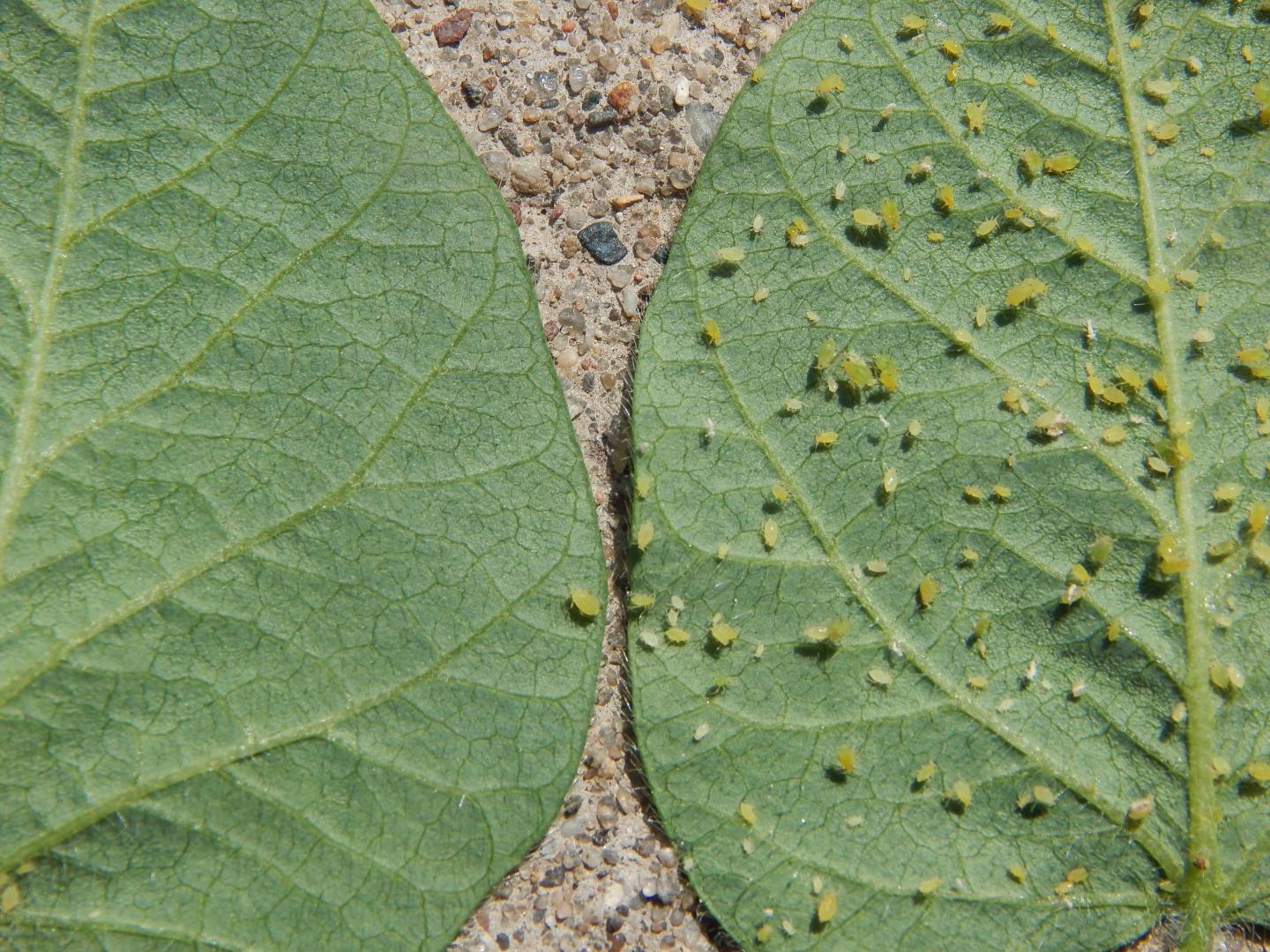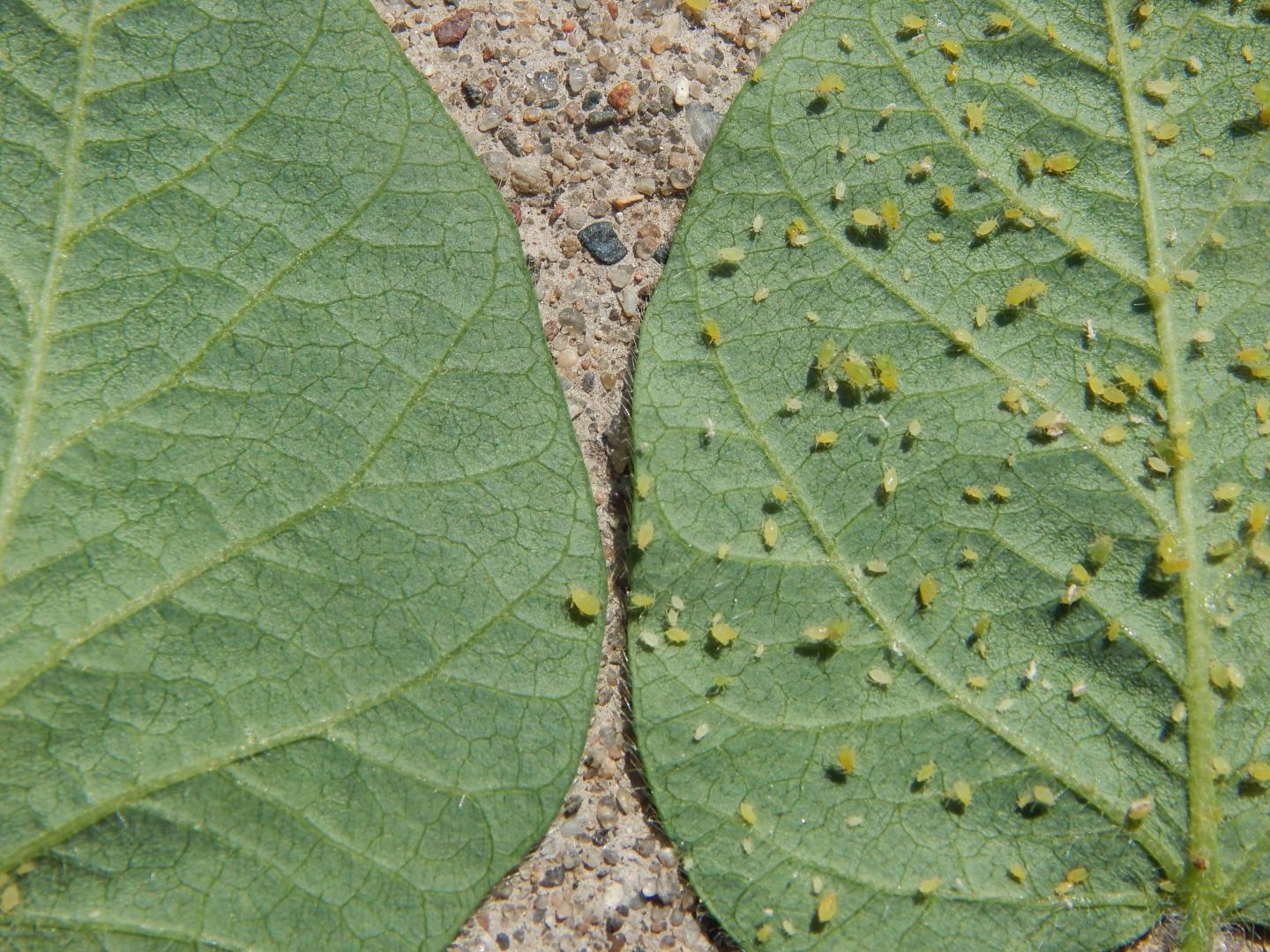
Credit: Anthony Hanson
A tiny pest can cause huge losses to soybean farmers.
Several top soybean producing states in the U.S. are in the Upper Midwest. In these states, an insect-the soybean aphid-is a damaging pest. Each year, soybean aphids cause billions of dollars in crop losses.
In a recent study, researchers have taken a big step toward identifying new soybean genes associated with aphid resistance.
"Discovering new resistance genes will help develop soybean varieties with more robust aphid resistance," says lead author Aaron Lorenz. "There are very few commercially-available varieties of soybean with aphid resistance genes. Newly-identified genes can serve as backup sources of resistance if the ones currently used are no longer useful." Lorenz is an agronomist and plant geneticist at the University of Minnesota.
Currently, insecticides are used to control aphid populations to reduce damage. But aphid populations that are resistant to widely-used insecticides have been found. Environmental issues with insecticide use can also be a concern. These issues may limit insecticide use in the future.
Using soybean varieties that are naturally resistant to aphids is an alternative to using insecticides. "But the soybean aphid is a genetically diverse species. It is capable of quickly overcoming plant resistance," says Lorenz. "So we need to identify new sources of soybean aphid resistance."
To find previously unknown aphid resistance genes, researchers used already-published research. Thousands of varieties of soybean have been tested for aphid resistance. Genetic information also exists for many of these soybean varieties.
Lorenz and colleagues combined data on existing aphid resistance and genetics. "Our goal was to find which parts of the soybean genome contain genes related to aphid resistance," says Lorenz.
To do so, the researchers scanned the soybean genome for small genetic landmarks, called SNPs (pronounced "snips"). Then they tested if any of these landmarks were present more often in soybean varieties that are resistant to aphids. If so, "we can infer that a gene associated with aphid resistance may be near that landmark," says Lorenz.
Researchers have to be careful, though. "There are many reasons-beyond physical proximity-that could cause these associations," says Lorenz. "We build statistical models to account for the other reasons."
Lorenz and colleagues found several genetic landmarks that were more common in aphid-resistant soybean varieties. Some of these landmarks were in genetic regions near aphid resistance genes. But many others were in genetic regions not previously associated with aphid resistance.
That's exciting, says Lorenz. "These results can help guide researchers toward discovering new aphid resistance genes. That could be key for developing new aphid-resistant varieties of soybean."
Also encouraging is that the researchers found genetic landmarks associated with aphid resistance in several different soybean varieties. "That means a broad range of genetic backgrounds can be used for breeding purposes," says Lorenz.
There is still work to do, though. Ultimately, multiple resistance genes can be bred into single soybean varieties. These varieties will then have highly robust resistance to aphids.
"I think resistance to aphids will become increasingly important to maintain soybean production," says Lorenz. "Soybean farmers should know about them. Demanding soybean aphid resistance in the varieties they use will help their development and availability."
Read more about this research in The Plant Genome. Funding for this research was provided by Minnesota Department of Agriculture, Minnesota Soybean Research and Promotion Council, and Minnesota Invasive Terrestrial Plants and Pests Center.
###
Media Contact
Susan Fisk
[email protected]
608-273-8091
@ASA_CSSA_SSSA
http://www.agronomy.org
Related Journal Article
http://dx.doi.org/10.3835/plantgenome2018.02.0011





